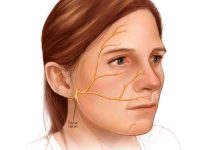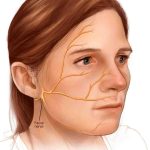Vertigo is a condition in which the sufferer feels as if the surrounding environment is spinning or floating. This condition will also make the sufferer lose balance, making it difficult to just stand or even walk. The best way to describe vertigo is to rotate your body several times and feel the conditions produced.
Keep in mind, vertigo is not the name of the disease. However, a collection of symptoms can occur suddenly or last for a certain period of time.
Symptoms of Vertigo
The common symptoms of vertigo are dizziness, a spinning head sensation and loss of balance. These signs will trigger the sufferer to experience a sensation of nausea, vomiting, excessive sweating, headaches, sometimes even accompanied by nystagmus (abnormal eye movements), ringing in the ears (tinnitus) and the sensation of feeling about to fall. Usually, this condition will disappear and can last for several minutes, hours, or even days.
Please consult to a doctor if your condition does not improve better. The doctor will usually ask for your symptoms, do a simple examination, and recommend further examination.
Causes of Vertigo
In general, there are two types of vertigo which are grouped according to the cause. Each condition also has its own causes.
1Peripheral vertigo
This type of vertigo is the most often experienced by most people. The cause of peripheral vertigo is caused by a disturbance in the inner ear which functions to regulate the body’s balance.
When you move your head, the inside of the ear will tell you where your head is and then send a signal to the brain to maintain balance. However, if there is a problem in the inner ear, you will feel pain and dizziness. This can occur because of inflammation in the inner ear or because of a viral infection.
In addition, this type of vertigo is caused by several other things such as:
1. Benign Paroxysmal Positional Vertigo (BPPV)
BPPV is the most common cause of vertigo, a condition in which the inner vestibular ear is disrupted and triggered by sudden changes in position and head movement. For example:
- Change the position of the head from an upright position to a sudden bow
- Wake up suddenly from sleep
- Movement of looking up head
The condition of BPPV is also more susceptible to people who have had surgery on their ears, have a history of head injuries, have ear infections, and are currently in a period of healing and bedrest.
2. Having History of Head Injury
Another cause of peripheral vertigo is due to the impact of a history of head injury. People who have had a previous head injury may experience inner ear disorders which then cause vertigo.
3. Experiencing Labyrinthitis
Labyrinthitis is inflammation and infection that occurs in the inner ear, especially in tortuous and fluid channels. This inner ear plays an important role in controlling one’s hearing and balance. Inner ear infection is usually caused by viruses and bacteria, for example in people with cold.
If you experience this disease due to Labyrinthitis, then other symptoms that will also arise are nausea, vomiting, loss of hearing ability, pain in the ear, and fever.
4. Vestibular Neuritis
Vestibular neuritis is inflammation that occurs in the nerve part of the ear that is directly connected to the brain. The inflammation is caused by a viral infection that usually occurs suddenly without accompanied by symptoms or other signs, there is even no problem with hearing ability.
This condition can occur for several hours a day. Symptoms of loss of balance, headaches, nausea, and even vomiting. Even though this inflammation occurs in the nerve part of the ear, this condition usually does not make the sufferer experience hearing loss.
5. Ménière’s Disease
Ménière’s disease is a rare disease that attacks the inner ear. Although Ménière’s disease is rare, this condition can be a very severe cause of vertigo. Even in some cases, the symptoms include ringing in the ears, and hearing loss over a period of time.
2Central Vertigo
Unlike peripheral vertigo caused by disturbances in the ears and balance organs, central vertigo occurs due to problems in the brain. The part of the brain that most affected by this disease is the cerebellum.
The following are some of the conditions that cause central vertigo:
- Migraine is a headache of varying intensity accompanied by throbbing pain and is often experienced by young people. Migraine is usually experienced by young people and is considered as one of the common causes of this disease. Avoiding triggers and treating migraines can usually relieve this disease.
- Multiple sclerosis, is a nerve signal disorder that occurs in the central nervous system – the brain and spine – which results from errors in an immune system.
- Acoustic neuroma, also known as vestibular schwannoma is a non-cancerous tumor on the main nerve leading from the inner ear to the brain. So far the acoustic neuroma is caused by a genetic disorder.
- Brain tumor that attacks the cerebellum, resulting in impaired body movement coordination.
- Stroke is a blockage of blood vessels that occurs in the brain.
- Consuming several types of drugs that cause vertigo side effects.
Vertigo Treatments
Patients can overcome vertigo by sitting still when symptoms recur. Some types of drugs can also be used to relieve symptoms, but must be prescribed by a doctor. The treatment that the doctor gives to patients can vary depending on the underlying cause. Some ways to prevent vertigo, including:
- Sleep with your head higher.
- Sit quietly for a moment when you wake up.
- Move your head slowly.
- Avoid bending position, so that vertigo does not recur.

































